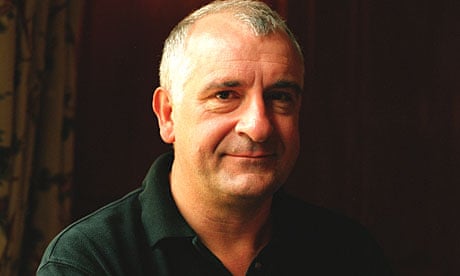It's 10 years today since Douglas Adams said a premature "so long, and thanks for all the fish", and died woefully young of a heart attack at the age of 49.
Adams was known for many things. He was a renowned environmentalist and animal-rights campaigner. He was an unofficial Python. He was a self-described "radical atheist" and earned both a eulogy and a dedication in The God Delusion from Richard Dawkins. He was a renowned hater of deadlines, his oft-quoted "I like the whooshing sound they make as they fly by" a mantra for many a writer since. He apparently had a thing for fast cars.
But most people will know Adams solely for The Hitch-Hiker's Guide to the Galaxy, which is pretty much how it should be. For all his many and diverse talents and interests, Adams was a phenomenal writer whose books have justifiably now passed into the "classic" category.
Like a lot of people, I came to his work through the 1981 TV adaptation of H2G2, as aficionados know it. We didn't listen to Radio 4 in our house, so I didn't know it had originally been a radio play. The first episode was broadcast a few days before my 11th birthday. A fan of science fiction, I sat down to watch, expecting something like Doctor Who or Space 1999. It was one of those moments.
At 11, I didn't know science fiction could be like this. I didn't know you could have heroes in dressing gowns and aliens who were destroying the earth just because it was their job. I didn't know people in space would go to pubs and computers might drink tea. I didn't know then that a lot of people would probably argue that H2G2 wasn't actually science fiction, it was comedy or satire. I didn't care. I bought the book. And had another one of those moments.
Because this was the first time I'd read a book that was better than what I'd just watched on the TV. The telly series was good, but this was so much better. I vividly remember being home from school poorly and finishing the book, and asking my mum to go out and buy The Restaurant at the End of the Universe. I remember it because she told me off for spelling "restaurant" incorrectly.
To kill time until Life, The Universe, and Everything – the third book of what was to become his "five-book trilogy" – came out in 1982, I reacquainted myself with dressing gown-wearing, listened to the audio tapes of the TV series that I'd made by holding a portable tape recorder to the TV's single speaker, and made my own Hitch-Hiker's Guide to the Galaxy book out of a cardboard cereal box with pages of facts about alien worlds. I didn't know or care about Adams's other interests until much later on, possibly even after his death in 2001. For me he was the Hitch-Hikers man, and always would be.
Adams's untimely death came just as the world was on the brink of big changes. Heaven knows what this "radical atheist", who was splitting his time between London and America, would have made of the 9/11 terrorist attacks and the resulting War on Terror, four months later. On the other hand, I'd rather expect him to be tickled and satisfied by the iPhone and Kindle explosion (perhaps you're reading this very piece on your smartphone right now, in which case have yourself a little Arthur Dent moment in honour of Adams and click on "Mostly Harmless").
Although science fiction – or comedy, or satire, or whatever – is meant to be entertaining rather than predictive, Adams himself was an early adopter and great believer in the internet and its opportunities. In 1990, the BBC broadcast Hyperland, written and starring Adams in which he falls asleep and is guided around the nascent cybersphere by Tom Baker (Adams also wrote the great "lost" Doctor Who storyline Shada, which was never completed or broadcast due to a BBC strike in 1979). And in 1999, when the web was bedding in but still not at everyone's fingertips, he wrote a piece for the Sunday Times entitled "How To Stop Worrying and Love the Internet", in which he said: "A couple of years or so ago I was a guest on Start the Week, and I was authoritatively informed by a very distinguished journalist that the whole Internet thing was just a silly fad, like ham radio in the 50s, and that if I thought any different I was really a bit naïve. It is a very British trait – natural, perhaps, for a country which has lost an empire and found Mr Blobby – to be so suspicious of change."
It really is a shame that he didn't live to see the world today. It's wonderful in some ways, a bit of a mess in many others. But if anyone could have made sense of it, Douglas Adams would probably be the man for the job,

Comments (…)
Sign in or create your Guardian account to join the discussion